What Studying Maths At Uni Is Like:
What studying Maths at uni is like:
1. Very different to A-level. There is more emphasis on proof, theorems and definitions so expect to be learning these lots. Even in modules like Probability and Statistics, not just Pure.
2. What is called Further Pure at A-level is not actually much like Pure maths at all. So if you’ve got a module with Pure in the title, don’t expect it to be second order ODEs, polar coordinates and complex numbers. It’s very much here’s a definition, here’s a theorem, here’s how to prove it (from my little experience of it).
3. Very algebra heavy. There are lots of questions that take a lot of rearranging and it gets very messy at times. Don’t be afraid of messy algebra, attack it.
4. Things start to become multidimensional. Like, most integration becomes stuff like surface and volume integrals. In my course I started multiple integrals in first year an then began applying them in second year. Even Statistics uses vectors more than scalars as you progress through the years.
5. There is a lot more focus on how you write maths. It’s like a language in itself. You can get a correct answer and still lose marks because you’ve used = instead of ~ or not connected your working with implication symbols. It gets easier as time passes.
6. You’ll have a variety of lectures (lecturer talks at you), problems classes (you work on problems with help from postgrad students and the lecture), examples classes (lecturer works through practise questions on whiteboard/projector) and tutorials (small group working through pre-completed questions with a tutor). From my experience, examples classes are more useful than lectures and problems classes are best when you’ve done the questions beforehand so you can get help on what you’re stuck on right away.
7. You probably won’t enjoy all of it. Most people enjoy either Applied, Pure or Probability/Statistics. Myself, I hated Pure. Some people love it. You can drop what branch you don’t like after first year.
8. It is stressful. The modules contain A LOT more content than A-level modules. It is difficult. Especially after first year when all of the stuff you’re learning is new. But it is manageable.
9. It is tiring. Having to concentrate in lectures for (about 22 hours in first year, 20 in second year, 12 in third year…) a week is hard. And then going back to halls/house and doing more work makes it harder. 9ams are difficult to get up for even though at school you probably did it every day with no problem.
10. It is satisfying. The best thing about it is being able to solve a problem you never dreamed you could do. That is rewarding. It makes it worth it.
If anyone wants to chat about maths at uni, feel free to send me a message. I’ve only done a BSc but have a few friends doing an MMath so I know a fair bit about it.
More Posts from Studentlifeposts-blog1 and Others
Important for people looking for colleges next year!
Campus Pride gives lists of:
Trans-inclusive women’s colleges
Colleges that have insurance that covers medical transition for students
Colleges with nondiscrimination policies that include gender
Colleges that allow you to change your name and gender on school records
Colleges with gender-neutral housing
Trans-inclusive college sports teams
Trans-inclusive college admissions policies
Also more stuff. (All are directly linked from the first link.)
Reblog so someone doesn’t have to spend their next 2-4(+) years at a school that treats them like crap.
On Autism and College, revised.
Here is some advice on navigating college/university, by an Autistic (American) student, for a/Autistic students.
Register with disability services as soon as you make your decision to go to your school. If you don’t have a diagnosis, you may be able to talk to them and get tested/diagnosed and get accommodations. It depends on your school.
Make sure to research housing. You will want to know about food, the type of people who live there, location, and activities available. You want to be able to eat with your meal plan, get to class just fine, meet people there (or not, depending what you prefer), and if you want something to do there you should know what is available.
Spread out classes as much as possible. You will get to choose when you have your classes. Know your schedule and work with it. For example, next semester all of my classes are in the afternoon, which is good because I have a weird ass circadian rhythm and ended up being nocturnal for half of this semester.
Find out the minimum amount of classes you can take and start with that. Don’t overwhelm yourself. I’m taking twelve hours (the minimum for a full time student) next semester.
Make a schedule of when your work is due. You will likely (especially in math and sciences) have weekly homework due on a certain day. Know when that is and plan for it.
Try your best to not procrastinate. I’ve had far too many panic attacks and meltdowns from waiting too long to do work. You probably won’t have work assigned one day and due the next (it can happen, but I haven’t seen it), so plan your time.
Don’t overdo it with organizations/clubs. Friends are great, but don’t make extra commitments you can’t keep. I’m being treasurer of an organization I love because I’m needed and it’s not a huge commitment; I just have to turn in paperwork by deadlines, which I have no problem with.
Keep in touch with your advisor. If you need to drop a class or change your major, you will need their help. Know their email and use it.
It’s okay to stim. No one’s gonna notice you stimming in a lecture hall unless it’s loud. I twist a paracord bracelet and chew a necklace in lectures. Smaller classes are trickier, but people tend to not care if you’re fidgeting with a bracelet or something that doesn’t make noise or chewing on something. It’s okay.
Emails can be awkward, it’s okay. You’re not going to have the perfect email all the time. Most professors are fine with a very straight to the point email. Example asking for help from a professor:
Dear [name]: I am in your [time] [class name] class. I need help with [x]. Could we meet sometime to work through this? (If you have a problem with face to face interaction, you could say “Could you explain this to me via email?” They may ask you to meet with them anyway, just a warning.) Thank you, [your name]
Write down all office hours, whether or not you think you’ll need them. Professors want to help. It looks good for them when students do well. Mostly they sit bored in their office during hours. Even if you’re not struggling, it looks good for you when you come in and talk about the course with them during hours.
If you can’t handle your major, switch. Try to major in a longtime special interest if you have one that you could do that with. There are jobs in every field. I personally am switching from physics to psychology.
Clubs are good for finding friends. I’m in five(ish) queer organizations and have quite a lot of friends from them. Especially in larger schools, you can probably find other a/Autistic folk by pursuing interests and joining clubs devoted to them.
You likely won’t be judged for being a little “odd”. No one really bats an eye when they find people sleeping in public places here. At most, people might know you as “that person that does X thing”, but if you have the confidence to rock that, then you’ll be fine.
Don’t buy textbooks until class starts. You almost definitely won’t need them the first day of class and there’s no point in buying a $120 textbook you never actually use.
Keep all of your class syllabuses together. Just… try not to lose them, and if you do contact your professor. They might have assignment due dates for the whole year.
Use a planner. I use Habitica, an app that works kinda like an RPG. It helps me remember meds and work and all that jazz.
If you need one, take a gap year. School will still be there when you get back. It’s okay.
Feel free to message me with questions! I will be a sophomore at University of Illinois at Urbana-Champaign next semester!

GOOD NEWS FOR #PublicSchools IN WISCONSIN - http://goo.gl/VqdsFt
The authors of the report contacted superintendents throughout #Wisconsin, to determine how the new flexibility provided by #GovScottWalker’s 2011 legislation has allowed them to alter their #Education programs for the BENEFIT OF STUDENTS, without the self-interested intrusion of organized labor #UNIONS.
“Superintendents of public schools no longer have to seek approval from public unions in order to make changes to the administration of their schools,” the report said. “They are free to adopt the best practices of teacher pay and classroom management.
“They can hire and fire teachers according to criteria other than the rigid policies from a union (#CollectiveBargaining agreement). The words ‘#Seniority’ and ‘teacher #Tenure’ can be terms of the past for many districts.”
There is now merit pay for teachers, in various forms across the state. In the old days of collective bargaining, teachers were stuck on rigid pay scales based strictly on the number of years they taught and the number of graduate credit hours they earned.
3 SUPER QUICK STUDY TIPS
1. Everyone is different, but find a good rhythm to study in. What I mean is find a good time increment to study in, and a good time increment for breaks. For me, I like to study in 45 minute bursts and take 15 minute breaks.
Note that it doesn’t have to be constant. Sometimes I’ll plug away for two hours and then run for an hour. There isn’t a set technique that works for 100% of the population, so you do you ☺
2. Stretch!!! This is important not just for exercise but for studying as well. Stretch before, stretch during, stretch after. Especially if you’re sitting on your butt for a while. This will be good for your joints, and also to get your blood pumping when you can’t break out and exercise.
3. Have snacks and water. Keep the snacks minimally messy, or eat with utensils so that you don’t make a mess all over your notes/textbook/laptop. Snacking healthily will help with metabolism and with keeping your focus on what you’re studying, NOT on food.
Teaching Skills, Not Just Content
Shira Lurie is a PhD hopeful in Early American History at the University of Virginia. Her exploration concentrates on well known political clashes over the American Revolution's legacy in the early republic. You can tail her on Twitter and on her site.
This year I TAed a course on the historical backdrop of Colonial British America for the most part non-history majors. A few understudies were there out of general interest, yet numerous were utilizing the course to satisfy a circulation necessity. While I positively trust that the investigation of history is imperative for everybody, I likewise needed my understudies to see the class as by and by advantageous and, most importantly, helpful for their prospects. I think this is one of the more subtle, yet noteworthy difficulties in post-optional educating: it is regularly the case that the greater part of understudies we instruct won't seek after professions in our field. We likewise know, likely from direct experience, that post-exam cerebrum channel is a fight no instructor can completely win. As TAs, our first obligation is, obviously, to educate content. Yet, given that our understudies will probably not utilize, thus overlook, the vast majority of the data they realize, by what means would we be able to guarantee an effect comparable to the time our understudies go through with us? I think in any event part of the answer is to chip away at ability improvement.
I chose that there were sure abilities I could concentrate on over the semester that would serve my understudies well in whatever professions they in the end sought after. Notwithstanding future convenience, investing a portion of class energy in expertise advancement additionally gives understudies chances to track their own particular advancement in specific zones. Here are a few aptitudes I underlined this semester and a few thoughts on the most proficient method to create them:
Composing
I started the term by disclosing to my understudies that written work would be a high need for us since great composition can separate them in whatever order they pick. About each different class I would break them into little gatherings and have them compose a couple sentences on a given brief or idea. For instance, I would give every gathering a term that they may need to recognize and dissect on the last, most decisive test. We would then put them up on a projector and investigate them as a class. This permitted understudies to get criticism on their composition and to thoroughly consider what makes a compelling sentence, section, and contention. It additionally empowered them to rehearse for the exam.
ARTICULATING AN ARGUMENT
Scientific speculation and the capacity to marshal proof in administration of a contention are likewise generally pertinent aptitudes. It is likewise essential to have the capacity to survey the contention of someone else and give reasons why you concur or oppose this idea. I had my understudies respond to the contentions of the books we read in class, and also to the feelings I and different understudies would voice. Contemplating a power's sentiment and having the capacity to mindfully voice resistance are profitable aptitudes that require sharpening. For instance, I set up a sentence from the book we were perusing on the board and sorted out understudies into two gatherings: the individuals who concurred and the individuals who couldn't help contradicting the sentence. The understudies then discussed with each other, offering proof from the book and different readings to bolster their focuses.
Open SPEAKING
While I didn't have my understudies give formal presentations, I saw investment in class exchange as a decent open door for them to hone their open talking aptitudes. I urged understudies to illuminate any ambiguous dialect they utilized and to work off of every others' focuses. I additionally attempted to discover chances to urge shyer understudies to talk up. For instance, amid gathering work, I requested that calmer gathering individuals be the ones to represent their gathering's commitment when we returned together as a class. This gave them an opportunity to rationally plan and even record their remarks on the off chance that they favored.
Eight Things to Know About Our Flying Observatory
Our flying observatory, called SOFIA, is the world’s largest airborne observatory. It is a partnership with the German Aerospace Center (DLR). SOFIA studies the life cycle of stars, planets (including Pluto’s atmosphere), how interstellar dust can contribute to planet formation, analyzes the area around black holes, and identifies complex molecules in space.
1. A Telescope in an Airplane

SOFIA stands for the Stratospheric Observatory for Infrared Astronomy. It is a Boeing 747SP aircraft that carries a 100-inch telescope to observe the universe while flying between 38,000 and 45,000 feet – the layer of Earth’s atmosphere called the stratosphere.
2. The Short Aircraft Means Long Flights

SP stands for “special performance.” The plane is 47 feet shorter than a standard 747, so it’s lighter and can fly greater distances. Each observing flight lasts 10-12 hours.
3. It Flies with A Hole in the Side of the Plane…

The telescope is behind a door that opens when SOFIA reaches altitude so astronomers on board can study the universe. The kind of light SOFIA observes, infrared, is blocked by almost all materials, so engineers designed the side of the aircraft to direct air up-and-over the open cavity, ensuring a smooth flight.
4. …But the Cabin is Pressurized!

A wall, called a pressure bulkhead, was added between the telescope and the cabin so the team inside the aircraft stays comfortable and safe. Each flight has pilots, telescope operators, scientists, flight planners and mission crew aboard.
5. This Telescope Has to Fly

Water vapor in Earth’s atmosphere blocks infrared light from reaching the ground. Flying at more than 39,000 feet puts SOFIA above more than 99% of this vapor, allowing astronomers to study infrared light coming from space. The airborne observatory can carry heavier, more powerful instruments than space-based observatories because it is not limited by launch weight restrictions and solar power.
6. Studying the Invisible Universe

Humans cannot see what is beyond the rainbow of visible light. However, many interesting astronomical processes happen in the clouds of dust and gas that often surround the objects SOFIA studies, like newly forming stars. Infrared light can pass through these clouds, allowing astronomers to study what is happening inside these areas.
7. The German Telescope

The telescope was built our partner, the German Aerospace Center, DLR. It is made of a glass-ceramic material called Zerodur that does not change shape when exposed to extremely cold temperatures. The telescope has a honeycomb design, which reduces the weight by 80%, from 8,700 lb to 1,764 lb. (Note that the honeycomb design was only visible before the reflective aluminum coating was applied to the mirror’s surface).
8. ZigZag Flights with a Purpose

The telescope can move up and down, between 20-60 degrees above the horizon. But it can only move significantly left and right by turning the whole aircraft. Each new direction of the flight means astronomers are studying a new celestial object. SOFIA’s flight planners carefully map where the plane needs to fly to best observe each object planned for that night.
Make sure to follow us on Tumblr for your regular dose of space: http://nasa.tumblr.com
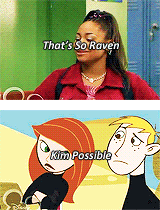
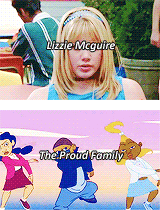
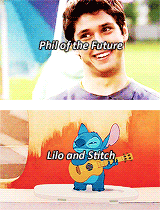
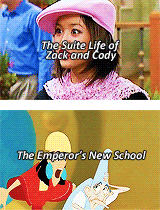

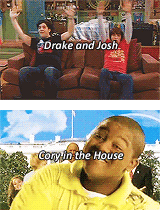
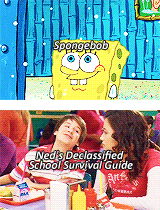
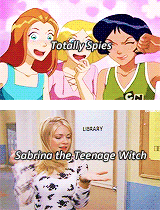
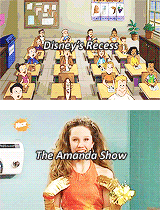

Yesterday, North Carolina’s anti-transgender climate reached a new low.
School officials announced that students will be allowed to bring pepper spray or mace to school beginning in the fall. One board member went as far as to say that defensive sprays could be used against trans people in bathrooms:
Board member Chuck Hughes voiced support of students carrying sprays, saying it could be a useful weapon should transgender students be allowed to use the restroom that matches their gender identity.
“Depending on how the courts rule on the bathroom issues, it may be a pretty valuable tool to have on the female students if they go to the bathroom, not knowing who may come in,” Hughes said, according to the Salisbury Post.
However, that person later tried to rescind his comments:
Hughes said he believes that his previous comments were “inappropriate” and that he didn’t mean for them to be related to the LGBT community.
“Perverts and pedophiles taking advantage of this law in bathrooms was my major concern,” he told BuzzFeed.
Oh my god. I can’t even believe this is real.
-
 gill21blr reblogged this · 4 years ago
gill21blr reblogged this · 4 years ago -
 eulers-entity liked this · 5 years ago
eulers-entity liked this · 5 years ago -
 study-swm liked this · 5 years ago
study-swm liked this · 5 years ago -
 magont reblogged this · 6 years ago
magont reblogged this · 6 years ago -
 magont liked this · 6 years ago
magont liked this · 6 years ago -
 smiiilealotandfuckhard liked this · 6 years ago
smiiilealotandfuckhard liked this · 6 years ago -
 pandora-moth-boi liked this · 6 years ago
pandora-moth-boi liked this · 6 years ago -
 ketenkusu liked this · 7 years ago
ketenkusu liked this · 7 years ago -
 youmaycallmemademoiselle reblogged this · 7 years ago
youmaycallmemademoiselle reblogged this · 7 years ago -
 youmaycallmemademoiselle liked this · 7 years ago
youmaycallmemademoiselle liked this · 7 years ago -
 mathematicalnonsense reblogged this · 7 years ago
mathematicalnonsense reblogged this · 7 years ago -
 circesspell liked this · 7 years ago
circesspell liked this · 7 years ago -
 crohssfire reblogged this · 7 years ago
crohssfire reblogged this · 7 years ago -
 crohssfire liked this · 7 years ago
crohssfire liked this · 7 years ago -
 bakugokatsvki-blog liked this · 7 years ago
bakugokatsvki-blog liked this · 7 years ago -
 fuzzyreflections liked this · 7 years ago
fuzzyreflections liked this · 7 years ago -
 elly-fant reblogged this · 7 years ago
elly-fant reblogged this · 7 years ago -
 elly-fant liked this · 7 years ago
elly-fant liked this · 7 years ago -
 proble-mathic liked this · 7 years ago
proble-mathic liked this · 7 years ago -
 freelyfuriousstarfish liked this · 7 years ago
freelyfuriousstarfish liked this · 7 years ago -
 highvaliumdosis liked this · 7 years ago
highvaliumdosis liked this · 7 years ago -
 thesweeticeboy liked this · 7 years ago
thesweeticeboy liked this · 7 years ago -
 volleyballfreek liked this · 7 years ago
volleyballfreek liked this · 7 years ago -
 logicheartsoul liked this · 7 years ago
logicheartsoul liked this · 7 years ago -
 study-geology reblogged this · 7 years ago
study-geology reblogged this · 7 years ago -
 study-geology liked this · 7 years ago
study-geology liked this · 7 years ago -
 berbsblog liked this · 7 years ago
berbsblog liked this · 7 years ago -
 acequava-blog liked this · 7 years ago
acequava-blog liked this · 7 years ago -
 tuulim-blog1 liked this · 7 years ago
tuulim-blog1 liked this · 7 years ago -
 my-sweet-sunday reblogged this · 7 years ago
my-sweet-sunday reblogged this · 7 years ago -
 creative-anchor-blog liked this · 7 years ago
creative-anchor-blog liked this · 7 years ago -
 s-susie reblogged this · 7 years ago
s-susie reblogged this · 7 years ago -
 s-susie liked this · 7 years ago
s-susie liked this · 7 years ago -
 nemo-studies-blog reblogged this · 7 years ago
nemo-studies-blog reblogged this · 7 years ago -
 mama-studies liked this · 7 years ago
mama-studies liked this · 7 years ago -
 studyalevels reblogged this · 7 years ago
studyalevels reblogged this · 7 years ago -
 craywolnation liked this · 7 years ago
craywolnation liked this · 7 years ago -
 26251849264901 liked this · 7 years ago
26251849264901 liked this · 7 years ago -
 fauxturtle liked this · 7 years ago
fauxturtle liked this · 7 years ago -
 homeonthemountain liked this · 7 years ago
homeonthemountain liked this · 7 years ago -
 redgardenia liked this · 7 years ago
redgardenia liked this · 7 years ago -
 jessistudys reblogged this · 7 years ago
jessistudys reblogged this · 7 years ago
Best education ,student life , best life,best university
69 posts